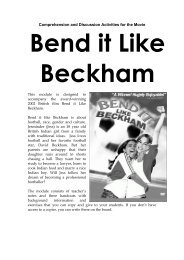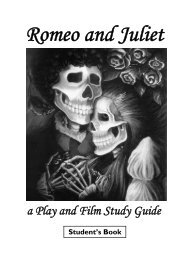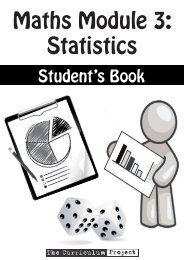Teacher's Guide - The Curriculum Project
Teacher's Guide - The Curriculum Project
Teacher's Guide - The Curriculum Project
- No tags were found...
You also want an ePaper? Increase the reach of your titles
YUMPU automatically turns print PDFs into web optimized ePapers that Google loves.
15. Global Economic InstitutionsBrainstorm1. Put students into groups of 3-5. Get them to think about the question for a fewminutes, and write some ideas down. <strong>The</strong>n elicit an idea from each group in turn.Pre-teach: grant (noun): money given to support an individual or a country; condition (noun):a requirement connected to something given; asset (noun): an item of value.Ask students to read the first paragraph about the World Bank. <strong>The</strong>y should writedown any words that they don’t know. Elicit these words. Ask if they, or otherstudents, can guess the meaning. If not, give them a dictionary to look it up andtell the class, or tell them yourself.Pairwork2. Quick Quiz. Ask students to write 3 questions about the information. Give themabout 10 minutes to do this. When they have finished, put them into pairs, and,without looking at their books, ask them to ask each other the questions and seehow many they can answer correctly.Pre-teach: to liberalise (verb): to make more free, reduce restrictions.Ask to read the paragraph about the ‘Criticisms of the World Bank’. <strong>The</strong>y shouldwrite down any words that they don’t know. Elicit these words. Ask if they, orother students, can guess the meaning. If not, give them a dictionary to look it upand tell the class, or tell them yourself.On Your Own3. True or false. Write the following statements on the board. Ask them to decidewhether they are true or false. If they answer is ‘false’, they must provide a correctstatement. Give them 10 minutes to think and write their answers. Elicit answersfrom students and check agreement with the rest of the class.1. Conditionality means that the World Bank has to agree to poor countries’ conditionswhen they give them money.Answer: False. Condionality means before poor countries can receive money, they mustagree to the World Bank’s economic and social policy conditions.2. Poor member countries of the World Bank have more influence over Bank decisionsthan rich member countries.Answer: False. Rich member countries have more influence over Bank decisions than poormember countries.Discussion4. Put the students into groups of 3. Ask them to read the information on the Nam<strong>The</strong>un 2 dam. Have them discuss the following questions in their groups:1. <strong>The</strong> Nam <strong>The</strong>un 2 dam issue is a conflict of national and local interests. If you had thepower, would you allow the project to continue, or cancel it? Why?2. Do you think the World Bank is right to fund this project? Why? Why not?After giving them 20 minutes or so to read and discuss, ask each group to giveits opinion on each question in turn. Discuss their answers in the class.NOTE: <strong>The</strong> idea of this discussion is to get students thinking about conflicts of national and localinterests, and the role of the World Bank in influencing a country’s economic decisions. It is notabout finding a ‘right’ or ‘wrong’ answer.<strong>The</strong> <strong>Curriculum</strong> <strong>Project</strong> ECONOMICS: an introduction - Teacher’s <strong>Guide</strong>50



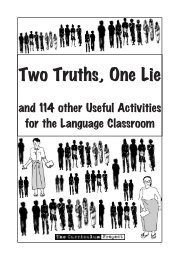
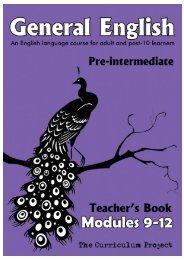
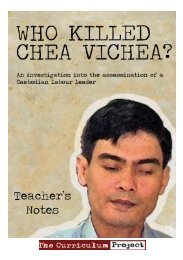
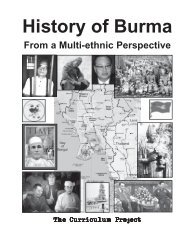
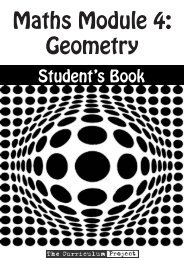

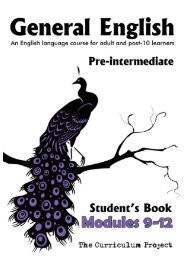

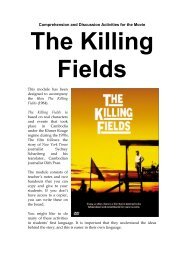
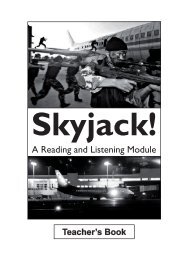
![[Eng] Nov 2012 DRAFT - The Curriculum Project](https://img.yumpu.com/45590859/1/184x260/eng-nov-2012-draft-the-curriculum-project.jpg?quality=85)
